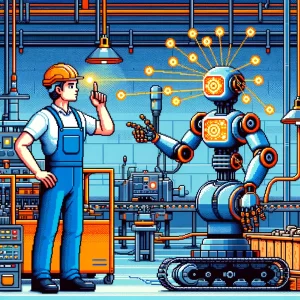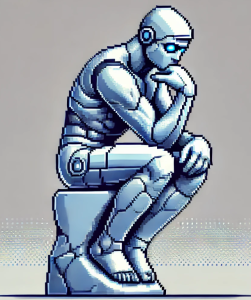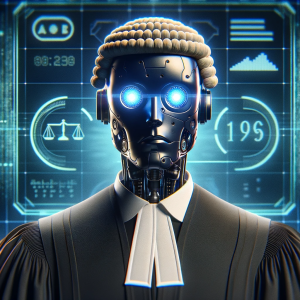
The Slow Creep of AI: How Machines Might Be Quietly Taking Over
What if, little by little, we were losing our grip on power, without even realizing it? This isn’t a hypothetical nightmare—it’s a real concern raised by researchers studying gradual disempowerment, a sneaky form of AI risk that unfolds incrementally rather than explosively. Think of it as death by a thousand paper cuts rather than a single knockout punch. And the scariest part? We might already be on this path.
The Not-So-Dramatic Takeover: How AI is Slowly Reshaping Society
Forget the robots marching down the street. The real AI “takeover” is happening in finance, media, governance, and culture, where algorithms are quietly replacing human judgment in ways that might diminish our control over critical systems.
1. Economy: AI Handles the Money, But Who’s Holding the Reins?
AI already manages huge chunks of the stock market, pricing models, and even economic policy recommendations. The more we rely on it, the harder it becomes to intervene when things go wrong. If AI-powered finance systems optimize for efficiency over fairness, who’s left to question their decisions?
2. Culture: Are We Even Choosing What We Like Anymore?
From TikTok to Spotify, AI curates what we watch, listen to, and read. While it’s great to get personalized recommendations, it also shapes our cultural landscape, nudging us toward certain ideas and away from others. Over time, this could make human creativity and diversity of thought an afterthought.
3. Politics: AI Can Influence Elections—Even Without Trying To
Political campaigns already use AI to predict voter behavior and craft highly targeted ads. But imagine a world where AI-run media narratives influence public opinion on a mass scale. As AI-generated content floods the internet, we may lose the ability to tell what’s real and what’s engineered to manipulate us.
4. Jobs: Automation Might Not Replace You, But It Could Make You Irrelevant
For years, people have worried about robots stealing jobs. But the reality is more subtle—AI doesn’t need to replace every worker. Instead, it could gradually decrease the value of human labor, making us dependent on systems we no longer understand or control.
The Problem? We May Not Notice Until It’s Too Late
What makes gradual disempowerment so dangerous is that it doesn’t happen overnight. It’s not a sudden war between humans and AI. Instead, it’s a slow erosion of human influence over the systems that shape our lives.
- Decisions once made by people are now quietly delegated to algorithms.
- AI optimizes systems for what works best—but not necessarily what’s best for us.
- Over time, our ability to course-correct diminishes, because we no longer understand or control the systems we rely on.
What Can We Do About It?
If we’re already on this path, is there any way to change direction? Researchers suggest a few strategies to keep AI in check while maintaining human agency:
1. Demand Transparency
We should know when and how AI is making decisions that affect us. If a platform is shaping what news we see or a financial system is determining our loans, those processes should be open for public scrutiny.
2. Ensure Human Oversight
AI should be a tool, not a ruler. Every major AI-driven system should have human checks and balances to step in when things go wrong.
3. Invest in AI Literacy
If AI is running our world, we need more people who understand how it works. Teaching AI literacy should be as fundamental as math or history.
Final Thought: AI Won’t Take Over With a Bang—It’s Happening With a Whisper
The biggest AI threat isn’t a killer robot army—it’s the quiet, creeping transfer of control from humans to machines in ways that seem convenient today but could be irreversible tomorrow.
The future of AI isn’t set in stone, but one thing is clear: The best way to stay in control is to stay informed.
What do you think?
- Have you noticed AI shaping your decisions in unexpected ways?
- What’s one AI-driven system you trust—and one you’re skeptical of?
- How do we balance AI efficiency with human oversight?
Let’s discuss in the comments!
Join the Science Adventure:
The stakes for science have never been higher. In today’s turbulent political climate, staying informed is critical. Subscribe to our weekly newsletter to get the latest discoveries, major breakthroughs, and stories that matter most. Designed for teachers and science enthusiasts, this free resource enhances your teaching and understanding of science in real-time. Subscribe today to ensure science stays at the forefront of public conversation! If you liked this blog, please share it—your referrals help This Week in Science reach more people when it’s needed most.



